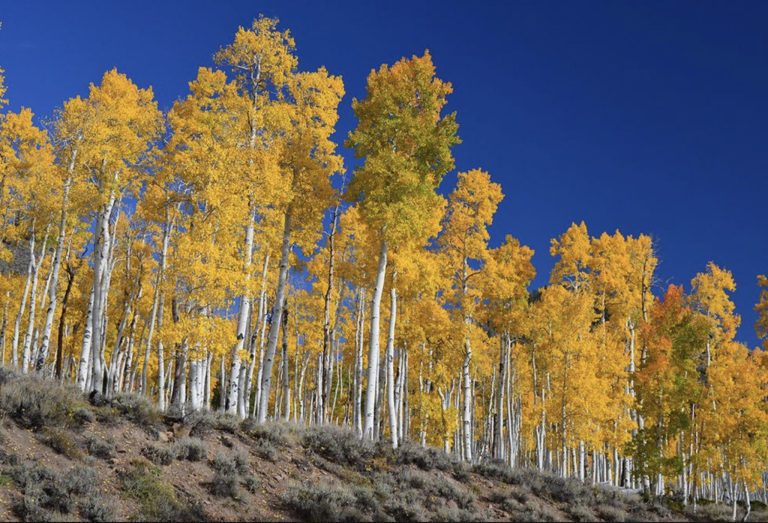
Do you care about biodiversity? Talk about lowering taxes and reducing traffic, then most people care. Because that is what we know. That’s understandable. But knowing what I know, I must insist that biodiversity matters even more than taxes and I’ll explain why.
The number of species at risk of extinction doubled this week. A research group led by Axel Hochkirch of the Musée National d’Histoire Naturelle, Luxembourg, analyzed 14,669 species of European vertebrates, invertebrates, and plants included in the International Union for Conservation of Nature’s Red List of Threatened Species and discovered that the threat of extinction is more troubling than previously assessed.
According to this European study, approximately one-fifth (19.4%, or 2,839 species) of the 14,669 species assessed are threatened with extinction. The percentage of threatened species was higher among plants (27%) and invertebrates (24%) than among vertebrates (18%). This high percentage of vulnerable plants and insects is concerning because vertebrates receive by far the most attention in terms of global conservation efforts. The results were extrapolated to predict that globally 2 million species on Earth may be at risk of extinction.
We’re losing lives as I write this. Species we never even knew may have gone extinct. Despite continuous conservation efforts, the Giant Sequoias of California are listed as endangered. Even the oldest known living organism on Earth, Pando, is at risk of dying. Pando is the name used to describe an interconnected root system that generates a clonal grove of quaking Aspen trees in Utah and may be as old as 80,000 years. It’s shocking to imagine the abrupt end of something so continuously present.
We should be especially concerned about the plant kingdom thriving as we rely on oxygen to breathe. Also, without the pollinators, devastating famine is in the near future. With urbanization we’ve come to think that industrial agriculture will provide for us indefinitely. Ironically, the way food is made for us in the Western world is a major threat to biodiversity. And loss of biodiversity, especially the decline of the insect population, threatens to disrupt the food web with devastating consequences.
We need the soil makers and the pollinators to be able to feed the global population. I reassure you, drones cannot be trusted with this task and technology will not come to rescue in time to generate oxygen. The man who found a way to sell air, Aloysius O’Hare of the Lorax, is fictitious. There’s no use going to Mars or other planets. This precious Earth is all we’ve got and we’ve got to start respecting the planetary boundaries we’ve violated for far too long.
The main drivers of biodiversity loss are agricultural land (ab)use, loss of habitats, residential and commercial overdevelopment, pollution and overexploitation. While invertebrates and plants are negatively affected by agricultural land (ab)use, vertebrates are typically threatened by overharvesting (hunting, fishing, poaching etc.).
Industrial agriculture is optimized for profit and not designed to enrich biodiversity. But there is a way to farm for food while supporting biodiversity. You can follow the Kiss the Ground movement to learn more. They’ve released two informative documentaries that highlight less harmful ways to grow food while supporting healthy ecosystems. Enjoy watching the Kiss the Ground film and the recently released Common Ground. You can also choose to reduce or eliminate meat consumption altogether and replace it with organic plant based food.
All life forms are threatened by the climate crisis. The cure for the biodiversity crisis is therefore discovered when we address the climate crisis. We must lower greenhouse gas emissions, break free from single use plastics, and transition towards renewable energy sources.
We can rewild our lifeless lawns and recreate wildlife habitats to reconnect our fragmented ecosystems and serve pollinators. Stop applying pesticides, herbicides, and other chemicals to land. Here on the North Shore, we can reduce pollution to our local waterways. We must stop all development into waterways and upgrade all conventional cesspools and septic systems. Nassau’s S.E.P.T.I.C. program can support you with that if you’re not sewered. Find out why you need to do that on their website.
In an effort to highlight the critical role land stewards play in this global biodiversity crisis The United Nations has committed to a decade of “PREVENTING, HALTING AND REVERSING LOSS OF NATURE.” The UN statement reads: “Ecosystems support all life on Earth. The healthier our ecosystems are, the healthier the planet – and its people. The UN Decade on Ecosystem Restoration aims to prevent, halt and reverse the degradation of ecosystems on every continent and in every ocean. It can help to end poverty, combat climate change and prevent a mass extinction. It will only succeed if everyone plays a part.”
Locally, land stewards are taking this pledge seriously and playing their part. This October, Transition Town Port Washington invited stakeholders to an inaugural meeting of the Biodiversity Coalition at the Port Washington Library with the aim of enhancing local biodiversity and further environmental education. Seven organizations and nonprofits attended this meeting. This Biodiversity Coalition of land stewards aims to share resources in the fight to manage the growth of invasives and restore ecosystem health and function.
In addition to the hosts, Environmental Analyst David Jakim and Margaret Galbraith, President of TTPW, representatives from the Science Museum of Long Island, Unitarian Universalist Church, Shelter Rock Road, Sands Point Preserve, Rewild Long Island, Baxter Pond Foundation, Hempstead Harbor Woods and PW Green attended. If you’re curious to support this effort, you can volunteer for the organizations mentioned. Please reach out to info@transitiontownpw.org for more details.
Do what you can, start where you’re at. Our lives depend on it!







